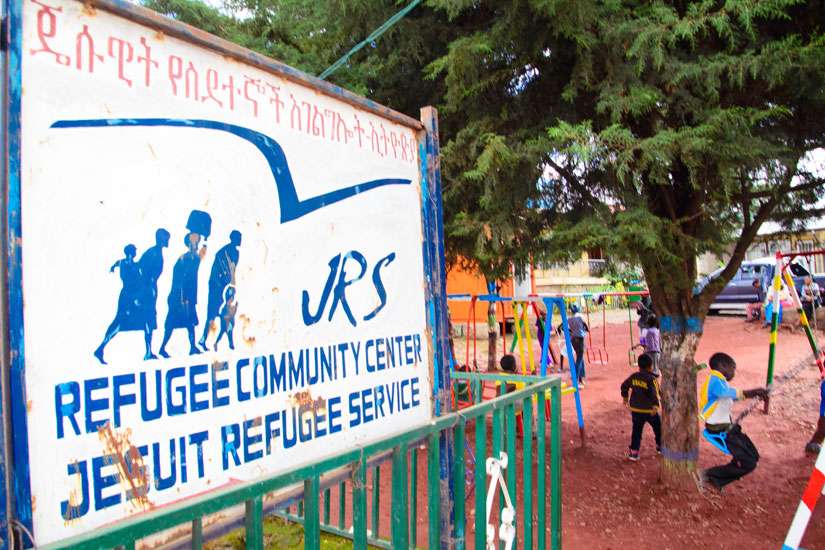Last year set a new record for refugees worldwide with 21.3 million official refugees, 40.8 million people driven from their homes but who had not yet crossed an international border and 3.2 million claiming asylum in the industrialized West. It adds up to 24 people displaced by war, famine, persecution or violence each and every minute of 2015. The United Nations High Commissioner for Refugees calculates that one out of every 113 people on Earth is now either an asylum seeker, internally displaced or a refugee, with children making up 51 per cent of the world’s refugees.
As the director of the Office for Refugees, Archdiocese of Toronto, Mark finds these numbers shocking and dispiriting.
“Maybe I’m a dreamer,” he told The Catholic Register. “I had the impression we had reached the peak (in 2014), that it cannot get worse. But, I was wrong.”
Last year the Office for Refugees began the process for sponsoring about 2,300 individual refugees, more than doubling the 1,500 cases the office already had on file on behalf of parishes, religious communities and other volunteer sponsorship groups. In recent months the office has more than doubled its small staff of six.
Since Nov. 4, 2015, 28,640 Syrian refugees have been resettled in Canada. This year Canada will resettle more than 44,000 refugees, the majority of them Syrians.
But Canada’s resettlement numbers and the efforts of hundreds of parish-based volunteer committees working with the Office for Refugees pale in comparison to the scale of the problem globally, Mark said.
“If you see the two forces — one is helping displaced people, to help find them durable solutions, it’s much smaller than the force creating wars and instability all around the world,” he said.
“We can’t just think about the vast numbers,” said Jesuit Refugee Service Canada executive director Norbert Piché. “We can only try to look at the faces of the people whom we meet. Just look at one person at a time, and don’t look at the numbers. Otherwise we get depressed.”
The JRS is focused on delivering education and other basic services to refugees. Both resettlement in Canada and aid to refugees where they are at are important in meeting the crisis, said Piché.
Piché worries about the politics of fear being used to shut down borders and stigmatize refugees who have managed to reach safety. Not only the Brexit vote to insulate Britain from the migrant crisis in Europe, but Kenya’s recent decision to shut down refugee camps that house people fleeing anarchy in Somalia are part of a global trend, he said.
“They’re taking it out on refugees and immigrants, unfortunately, instead of figuring out what we need to do here to try to make things better for everybody... They’re the scapegoats in all this.”
Without solutions countries such as Turkey, host to 2.5 million refugees, and Lebanon, where there’s one refugee for every five citizens, risk destabilization. Getting basic health, education and other services to refugees and resettling those who have no hope of ever returning home are the only way of keeping the lid on an increasingly violent, chaotic world, Piché said.
Mark sees a need for Canadian Catholics to do more than just sponsor and resettle refugees.
“We who visit the camps, we who know the reality, we have to speak up,” he said. “We have to be advocates. We cannot be silent anymore. We cannot be just refugee workers.”
Religious communities play an essential role in countering the forces that have created so many refugees since the turn of the century, Mark said.
“In the 20th century, most of the wars and persecutions occurred around ethnicity and nationalism. However, in the 21st century the focus of most of the crisis situations worldwide is related to faith, belief and religion. We should speak up about this,” he said.


